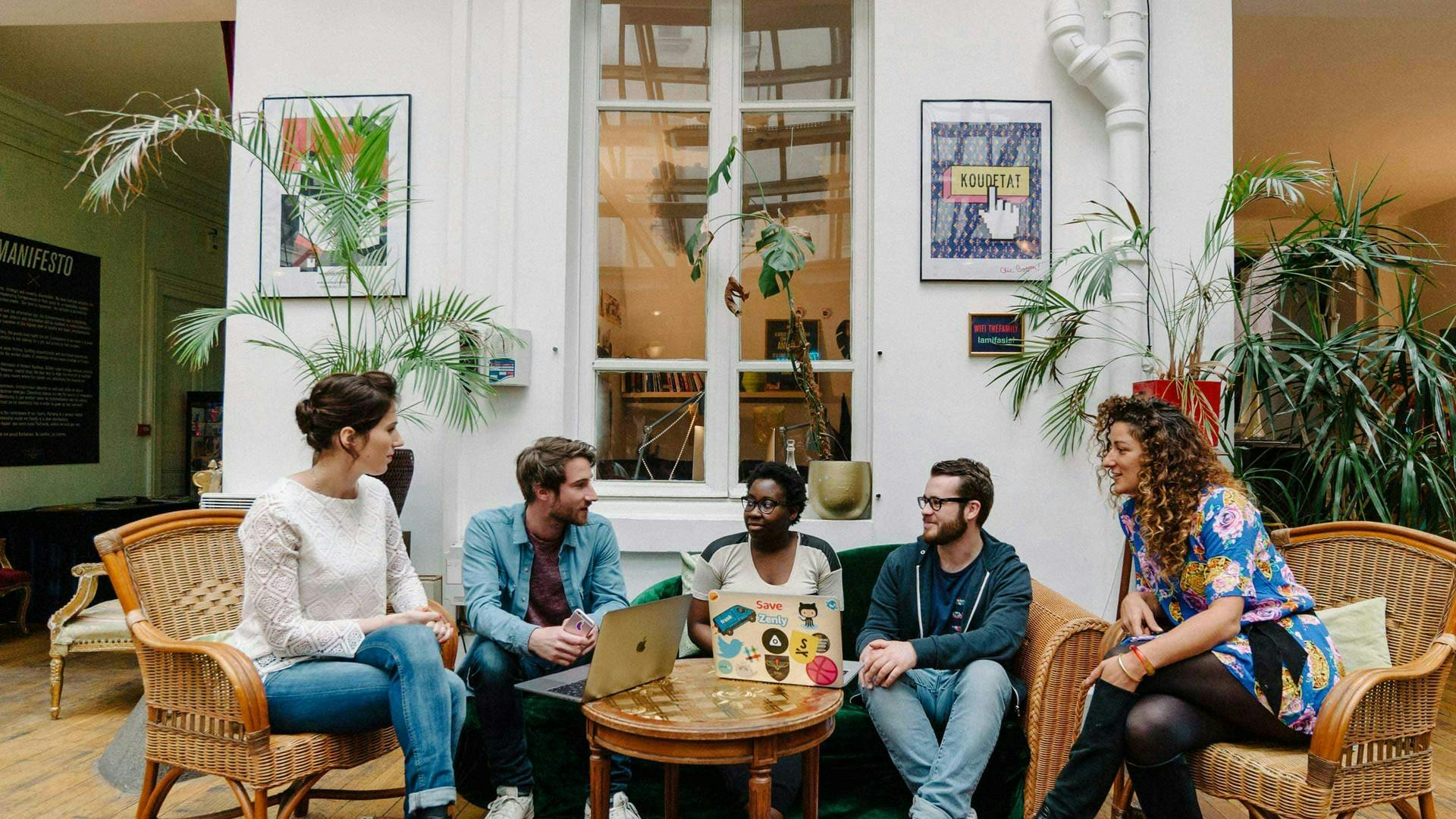Not your typical VCs: Changing the fundraising game for startups
t’s safe to say that raising money is a necessary stage for many founders throughout their entrepreneurial journey. But in recent years, the fundraising environment has been changing dramatically, with VC firms no longer just supplying financing to startups in return for equity. Here are four programs based in various parts of the world which aren’t your average, everyday VCs.

TheFamily was featured in our Startup Guide Paris book.
The non-VC that nurtures startups through capital
TheFamily claims it isn’t an incubator or an accelerator, nor is it a VC. On its website, TheFamily states it is “the family for entrepreneurs in Europe” that strives to educate entrepreneurs, build an infrastructure to empower them and create privileged access to investors.
“When we speak with startups, we want to ask them, is your project speaking to a real problem? A real need for a client? This is why we think education is so important, and why we welcome hard questions. Through this process we all learn, do-ers and startup teams alike,” CEO of TheFamily, Alice Zagury, told Startup Guide.
In search of true social innovation and teams that are tackling issues that matter, the organization does not believe in sectors and holds that digital is intrinsic to any current business strategy. Trusting that the digital revolution has already sunk its teeth into communications and media, it is looking to the worlds that are falling behind, such as agriculture, healthcare, education and other public services.
Based in Paris and London in addition to Berlin, TheFamily has empowered over 500 startups in the past four years, almost half of which are still active members in its network. Acting as a European platform wherein companies could envision raising funds in London, hiring in Paris, and executing in Berlin, it aims to help entrepreneurs scale beyond the traditional frameworks and networks.
“We are there to make the pertinent introductions so that entrepreneurs can find the right investors while avoiding certain pitfalls. We provide the infrastructure so nobody drowns out there. If we are trying to do something totally new, we will guide it, like you would any new life,” explains Alice.
The venture fund that provides financial and human capital
Startups which attempt to raise equity financing fail mainly due to lack of market fit, funding and a talented team, according to a report earlier this year by CB Insights. But one venture fund and startup studio aims to fix all three of these issues.
Based in NYC and founded in 2015, Human Ventures strives to unlock significant ideas by supporting and building businesses alongside entrepreneurs and ultimately getting them funded. “We help mitigate the risk of not finding a market fit by providing rapid prototyping and testing,” CEO of Human Ventures, Heather Hartnett, told Forbes. “This insures that the idea has the traction that institutional investors seek before making an investment.”
Startups which attempt to raise equity financing fail mainly due to lack of market fit, funding and a talented team.
Each year, Human Ventures offers $250,000 to $500,000 for two to five aspiring founders. Each of them is then equipped for success in that they’re surrounded with human capital in the form of investors, experts and mentors.
As a cross between an incubator and an accelerator, Human Ventures focuses on early-stage companies while also giving them a small seed investment and access to a mentor network in exchange for a bit of equity. Of particular value at the startup studio is its mentor network, which generally consists of corporate and startup executives as well as outside investors.
The half VC, half startup
One of the advantages of going to a venture capital firm as an entrepreneur rather than bootstrapping or borrowing money from a bank is that a VC can offer expertise and mentorship in helping you develop your business.
EQT Ventures is one such VC, though it says it stands out from others since it’s “a hybrid between a VC and a startup.” The two dozen people on the team “are not your typical financial investment managers,” operating partner Ted Persson told Startup Guide. Rather, they’re former entrepreneurs and ex-operators, and as such they can give actionable advice and relevant support.

Ted Persson, Operating Partner at EQT Ventures.
The investment company, which has locations in Stockholm, Amsterdam, London, Berlin, Luxembourg and San Francisco, sets itself apart from others VCs across the world since its team is composed not solely of money experts but of founders who have gone through the ins and outs of launching a startup too. Some are even working on an internal startup called Motherbrain, which is keeping them up to speed with the latest methodologies.
The funding partner with a unique structure
Instead of seeking out successful, scalable companies, which is what many traditional VC firms do, indie.vc focuses on building positive cash-flow businesses that are sustainable. The venture capital program sets itself apart by putting less of an emphasis on a company’s multiple funding rounds, potential for growth and lucrative exits.
On its simple, black and white website, indie.vc states that it’s a “funding partner” which invests in “real businesses” and focuses on “customers, revenue and profitability - not investors, valuations and the next fundable milestone.” The website goes on to say: “our interest is in giving founders more control over their company and culture, not less.”
After launching in 2015 in San Francisco, cofounder of indie.vc Bryce Roberts said at an information session that it is “not a back up school for failed attempts at getting into other incubators, accelerators or a grander catapult to launch you into the world or traditional VC funding.” Rather, indie.vc is intended to be something different.
Three years since its inception, the venture capital program which mainly invests in tech and tech-enabled companies has reportedly struck a chord with female founders. Indie.vc also seems focused on disrupting the current VC model and isn’t shy about it, according to Venture Beat.
All photos: Startup Guide
*This article was originally published on October 17th, 2018 and updated on January 3rd, 2018.

